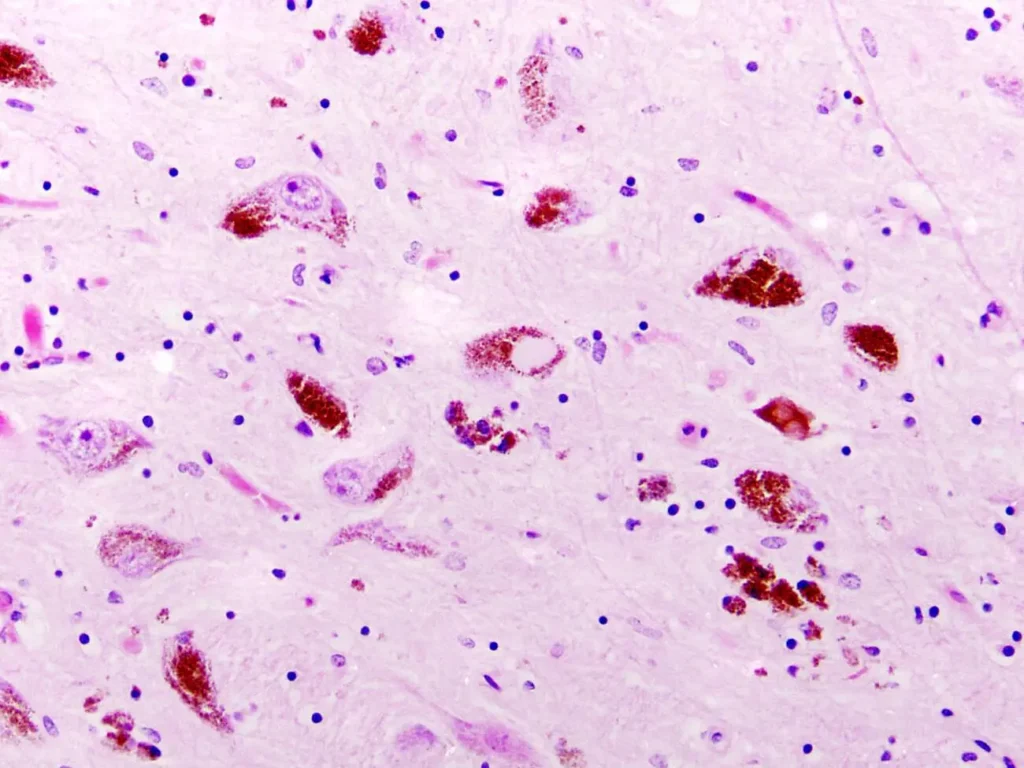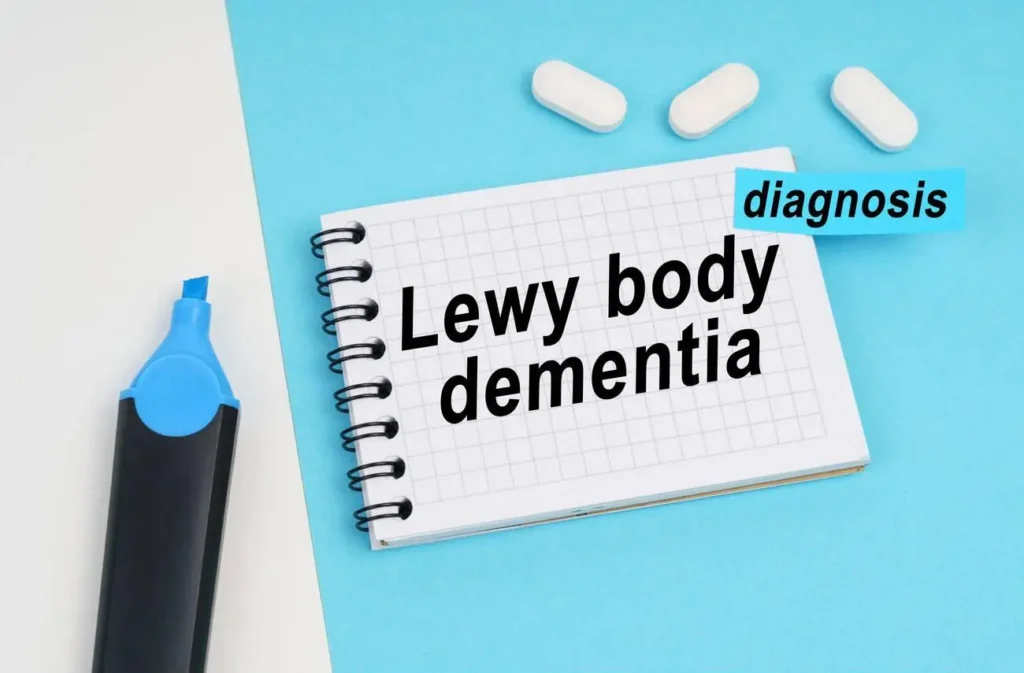
What are 7 Stages of Lewy Body Dementia
7 Stages of Lewy Body Dementia is a continuous brain illness with seven stages. It is created when a protein called alpha-synuclein accumulates in the brain. This causes problems with thinking, movement, and variations in how alert a person is. Lewy Body Dementia affects a large number of people and is the second most common type of dementia, after Alzheimer’s. LBD is difficult to diagnose because the symptoms change from person to person. These signs include issues with the autonomic nervous system, mobility, sleep, cognition, and behavior. People with LBD need complex treatment because they might show a variety of symptoms, including difficulty thinking, Parkinson’s-like movement disorders, mood problems, hallucinations, and a loss of enthusiasm or motivation.
Learning About 7 Stages of Lewy Body Dementia Stages of LBD:
The 7 Stages of Lewy Body Dementia divide the disease into stages based on the seriousness of the signs and their impact on daily living. It is vital to understand that staging may differ for each individual. This disease changes based on the type of dementia and the one’s overall condition. Lewy Body Dementia (LBD) occurs in three stages: mild, moderate, and severe. Each person’s experience with LBD differs, and the symptoms may not necessarily follow a predictable pattern. LBD can be difficult to diagnose since it causes a variety of symptoms that vary from person to person.
Know about the 7 Stages of Lewy Body Dementia

Stage 1: No Cognitive Decline
Individuals in the first stage of 7 Stages of Lewy Body Dementia do not exhibit any apparent cognitive loss. This stage can often continue several years before symptoms appear. Here are the symptoms:
-No obvious indicators of memory loss, difficulties thinking, or behavioral problems.
Individuals can operate freely and continue with their normal daily routines.
-Brain alterations related to LBD may already exist, but they are not creating any visible symptoms.
This stage is imperceptible to both the individual and their loved ones. Early diagnosis is critical for effective illness management, yet it is often overlooked in Stage 1. Some people may suffer minor, non-cognitive symptoms during this stage, like sleep difficulties or changes in scent, which could be early signs of LBD.
Stage 2: Very Mild Symptoms
Stage 2 of 7 Stages of Lewy Body Dementia is characterized by modest alterations that may go unrecognized or be mistaken for normal aging. The moderate nature of the symptoms makes this stage difficult to detect.
-Occasional memory lapses, including misplacing common items and missing names or appointments.
-Have trouble concentrating, following instructions, or planning projects.
-Increased daytime drowsiness, vivid dreams, or acting out dreams while asleep (REM sleep behavior disorder).
-Seeing things that aren’t there, usually brief and uncomplicated.
-Intermittent drowsiness or confusion, which might be misinterpreted for weariness.
Symptoms are often vague and easily dismissed as normal aging or stress. Individuals may not recognize these changes themselves. Family members may be the first to notice subtle differences in behavior or cognitive function.
Stage 3: Mild Cognitive Decline
Stage 3 of 7 Stages of Lewy Body Dementia demonstrates a significant increase in cognitive impairment over the preceding stages. While individuals may retain some independence, the impact on daily life becomes clearer.
-Difficulty remembering recent events, forgetting discussions, and difficulty with routine chores.
-Difficulty focusing, organizing thoughts, making judgments, and following directions.
-Difficulties with distance estimation, navigating unfamiliar surroundings, or executing spatially demanding tasks.
-You may notice tremors, stiffness, slowness of movement, or difficulty balancing.
-More frequent spells of tiredness, disorientation, or “off” time, which increase symptoms.
-Hallucinations could become more frequent, complicated, and detailed.
-False notions that may be ingrained and impervious to argument.
-Apathy, anxiety, depression, or social disengagement may become more common.
Individuals may start needing assistance with some daily activities, such as managing finances, cooking, or personal care. The increased severity of symptoms can cause frustration, anxiety, and social isolation.
Stage 4: Moderate Cognitive Decline
The fourth of 7 Stages of Lewy Body Dementia indicates a critical turning point in the disease’s course. Cognitive deterioration becomes increasingly severe, affecting daily life and frequently leading to a formal diagnosis.
-Difficulty recalling recent events, discussions, and personal items.
-Difficulty managing cash, sticking to routines, and making decisions.
-Difficulty interpreting complex situations and making sound decisions.
-Difficulty navigating unfamiliar locations, assessing distances, and performing spatial awareness tasks has increased.
Tremors, rigidity, delayed movement, and decreased balance can all have a substantial impact on daily tasks.
-Drowsiness, confusion, and “off” time can interfere with regular activities.
-Hallucinations can be more frequent, detailed, and affect many senses (auditory and tactile).
-Fixed erroneous beliefs and suspicion might result in distress and behavioral issues.
-Increased behavioral changes: Apathy, anxiety, sadness, hostility, and social disengagement may become more severe.
Individuals typically require significant assistance with daily activities, such as dressing, bathing, and medication management. Driving becomes unsafe due to cognitive and motor impairments. Communication difficulties may arise, making it challenging to express needs and desires. Risk of falls and injuries increases due to movement problems and impaired balance. Psychological symptoms like delusions and hallucinations can be distressing for both the individual and their caregivers.
Stage 5: Moderately Severe Cognitive Decline
The fifth stage of 7 Stages of Lewy Body Dementia is characterized by a significant deterioration in cognitive ability and an increased reliance on others for daily care. This stage is frequently marked by a loss of independence and an increased need for professional assistance.
– Difficulty recalling intimate details, recognizable faces, and recent occurrences.
Inability to manage everyday duties, make decisions, or follow routines on their own.
– Difficulty identifying familiar places and people, as well as a lack of time and place awareness.
– Speech can become slurred, vocabulary is limited, and communicating requirements is difficult.
– Tremors, rigidity, and slow movement might impair mobility and increase the risk of falling.
– Frequent periods of “off” time might impair daily functioning and communication.
– Hallucinations can include several senses and are resistant to reassurance.
-Fixed erroneous beliefs and suspicions may become more evident and disruptive.
– Apathy, anxiety, sadness, aggressiveness, and sleep difficulties might be difficult to treat.
Individuals typically require extensive assistance with all aspects of daily living, including dressing, bathing, toileting, and eating.
Stage 6: Severe Cognitive Decline
The sixth stage of 7 Stages of Lewy Body Dementia is characterized by a considerable decline in cognitive function and total reliance on others for all aspects of daily life. Individuals in this stage have substantial limits in communication, mobility, and overall well-being.
-Difficulty remembering even basic facts, personal history, or recognizable faces.
-Inability to comprehend complex ideas, follow directions, or make decisions.
-Difficulty recognizing surroundings, time, and people, resulting in a condition of perplexity.
-Speech can be restricted to simple words or noises, making verbal communication difficult.
Individuals require full assistance with all everyday tasks, including eating, dressing, toileting, and mobility.
-Rigidity, slow mobility, and difficulties maintaining balance all raise the risk of falls and injury.
Frequent “off” times might hinder communication and responsiveness.These symptoms may vary in strength, but they can still be present and uncomfortable.
-Apathy, anxiety, depression, and agitation may persist and require treatment.
Risk of infections and medical complications increases significantly. Caregiver burden reaches its peak, requiring significant emotional and physical support. End-of-life considerations become increasingly important as the disease progresses.
Stage 7: Very Severe Cognitive Decline
Stage 7 of7 Stages of Lewy Body Dementia is the final and most advanced stage of the disease. It is distinguished by a full lack of cognitive function and a total reliance on others for all aspects of life. Individuals in this stage are no longer able to communicate effectively or respond to their surroundings.
Individuals lose their ability to recall personal information, memories, or surroundings.
-Inability to think, reason, comprehend, or interact with the environment in a meaningful way.
Individuals may become insensitive to stimuli and have little or no awareness of their environment.
-Needs constant help with all bodily processes, including breathing, feeding, and hygiene.
-Increased risk of infection, complications, and eventual death.
Individuals require extensive medical care and constant monitoring to ensure their physical comfort and well-being.
Living with 7 Stages of Lewy Body Dementia

Living through the 7 Stages of Lewy Body Dementia is a journey where things gradually get harder, and new challenges pop up. These stages give a general idea, but everyone’s experience is different. In the beginning, you might notice small changes, but it can turn into big issues with thinking, moving, and staying alert.
As the disease gets worse, you’ll rely more on others and need a lot of care and support. Even though it’s tough, knowing the stages and getting help from professionals can give you, your family, and caregivers the information, kindness, and resources you need to handle this journey.





